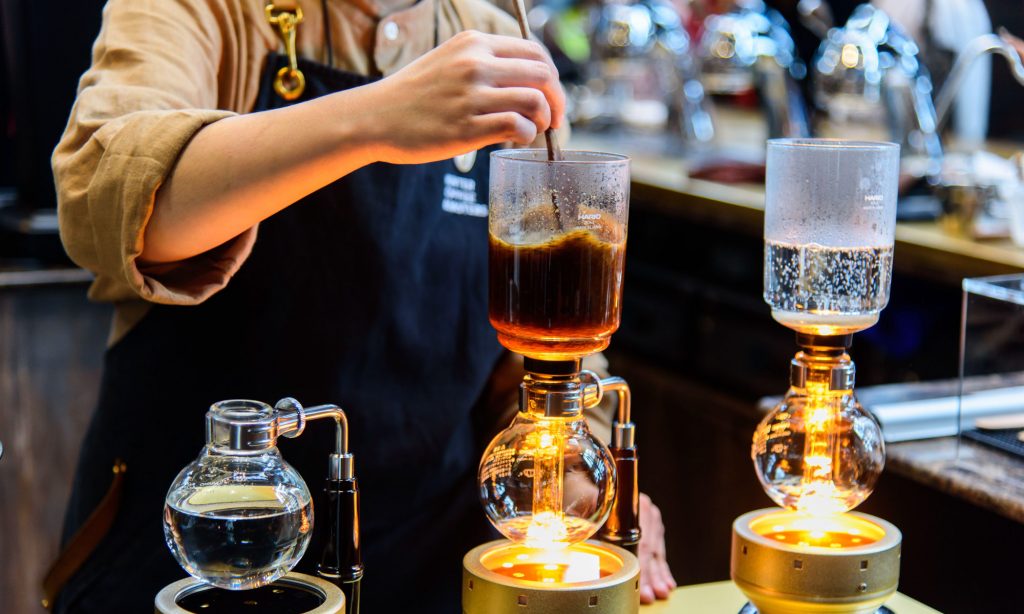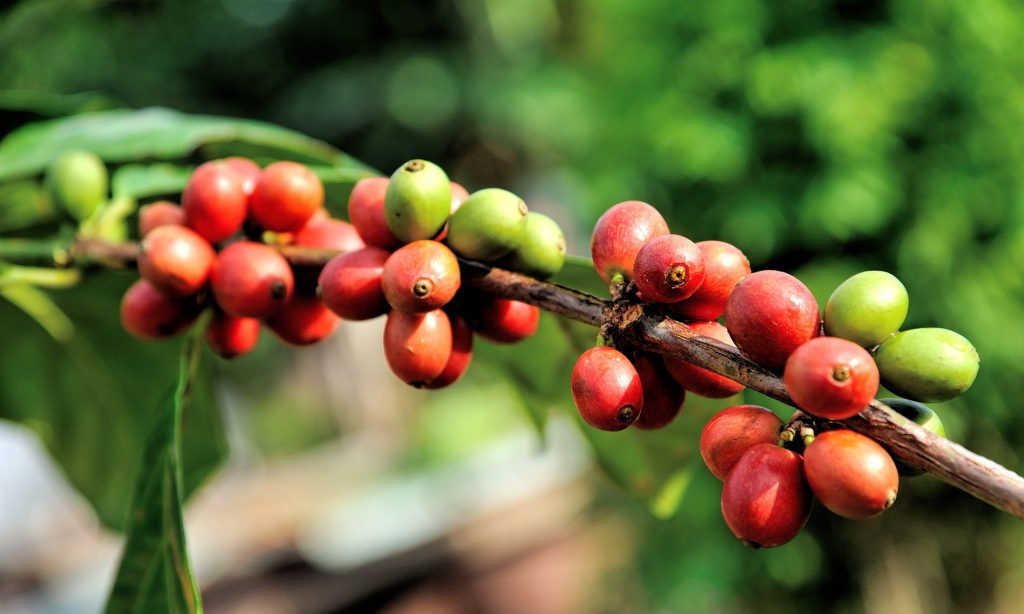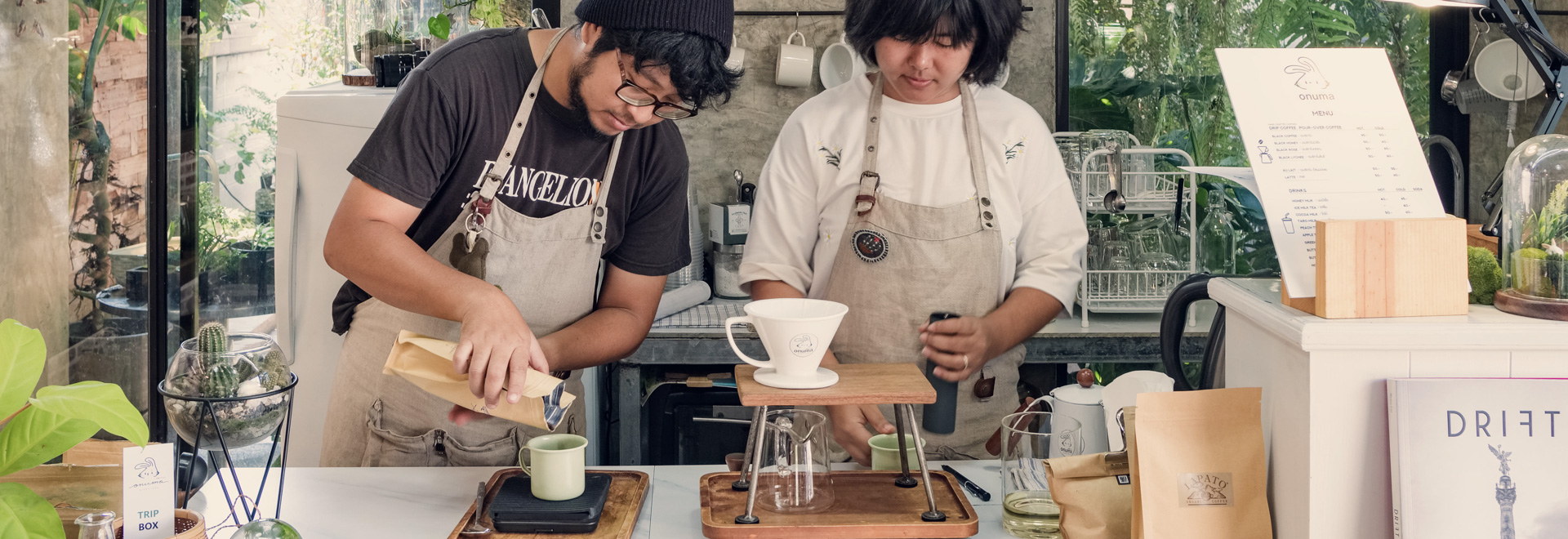Bangkok: Southeast Asia’s new specialty coffee hub
Ben Mitchell speaks with Thai barista and roaster Wasin Chalanuchpong to find out more about Bangkok’s developing role as Southeast Asia’s specialty coffee hub.
In the 1960s, Thailand’s Royal Family backed a coffee-growing programme that would provide local farmers with a financially viable agricultural alternative.
The subsequent transition was supplemented with research that helped farmers grow their new crop, and 60 years later, Thailand became a globally-recognised coffee origin.
Most farming regions in Thailand are located near government or royal family-funded research stations that work in collaboration with producers.
Not only did this initiative kickstart coffee culture in Thailand, it also laid a solid infrastructural foundation from which Bangkok’s exciting speciality scene is blossoming today.
Indeed, coffee consumption in Thailand doubled between 2009 and 2019, and the market expected to grow at more than 10% per annum for the next three years.
As such, Bangkok is quickly becoming one of Southeast Asia’s most notable coffee hubs. Young, increasingly affluent urbanites see specialty coffee more and more as a product worth splashing their disposable income on – and Thai baristas are making their mark on the international competition stage.
One of the pioneering companies leading the charge is NaNa Coffee Roasters, run by Wasin Chalanuchpong and his father, Warong.
Wasin himself recently competed in Thailand’s National Brewer’s Cup 2022, finishing as runner-up, while fellow NaNa barista Kasama Kunboon became the first person from Thailand to win the World Siphonist Championship in 2018.
He believes that in contrast to the homogenised nature of coffee chains, specialty coffee celebrates not only the uniqueness within coffee, but the people who work with it, too – and independent coffee shops like NaNa Coffee are giving Thai baristas the freedom to express themselves.
It’s no surprise, Wasin explains, that specialty coffee has found a space in Bangkok’s unique coffee culture.
“Thai people do not really consume coffee for the caffeine content as much as other cultures,” he says. “Rather, Thai people would drink coffee for its experience. Thai people are starting to treat coffee as a luxury.”

Blending creativity and individuality
The experience-oriented approach has been present in Thailand since the introduction of kafae boran, a traditional Thai coffee drink developed in response to coffee scarcity during WWII.
Similarly to Vietnamese coffee, it’s also made using robusta, but can include additives like brown sugar, grains, salt, butter, or tamarind seeds. It’s typically brewed in a cotton filter bag, making it a full-blown brewing experience.
Wasin adds that this experience-based approach makes Thailand’s burgeoning coffee culture very similar to that of the United Arab Emirates. The similarity goes one step further: cafés in both countries are decorated with taste and care.
Around the world, many specialty coffee shops are incredibly design-oriented, reflecting the individualistic nature of the industry. For example, all three NaNa Coffee retail stores are strikingly different, and Wasin believes that special touches like this are pushing Bangkok to the pinnacle of Southeast Asian specialty coffee.
These cafés also play into the hands of Thailand’s social media culture. The country ranks eighth in the world in terms of active internet users, and with a social media penetration of 81.2%, Bangkok’s cafes are being designed in a way that lets their customer’s social media feeds do their marketing for them.
Wasin notes that Bangkok’s scene also closely resembles Australia’s coffee culture, with knowledge constantly being transferred both ways.
“Thai baristas who have trained or worked in Australia have returned to Thailand to develop the coffee scene,” he adds.
These Thai coffee professionals are already setting their own trends and Bangkok’s young coffee crowd seems to love a signature drink, creating a creative space for roasters and cafés to innovate.

The role of Thailand’s young coffee producers
In addition to foreign specialty coffee influences, coffee shops in Bangkok are also supported by a young, innovative cohort of Thai farmers.
Unlike in many other coffee producing countries, the average age of a Thai coffee farmer is 25-35. These young farmers are pushing their industry forward with the introduction of new varieties and experimental processing methods.
Furthermore, Thailand has the second-highest import tariff on coffee in the world. It’s a policy that provides price stability for farmers while ensuring domestic trading remains high.
It also brings life to the supply chain in Bangkok. For example, in the 2018 Thailand Coffee Celebration held in Bangkok, many farmers not only sold their beans, but provided punters with coffee-themed trips that celebrated the complete process – from farm to cup.
However, this high import tariff is an insular policy that reduces competition to a degree, slowing down innovation and removing incentive for Thai coffee farmers to innovate. Ultimately, this limits Thai coffee’s participation in the international market.
Like Bangkok, Chiang Mai is another blooming coffee hub. Its surrounding geography in the north of the country is also incredibly conducive to arabica production. Here, cafés offer high-quality arabica, unlike street vendors peddling robusta elsewhere.
And, because the south of the country is dominated by robusta, many of Bangkok coffee shops are serviced by robusta-growing farms.
Somehow, young, innovative producers have managed to turn this problem into an opportunity, experimenting with new processing methods and developing fine robusta for the specialty market. In fact, in 2016, SCA Thailand held its first Speciality Robusta Cupping Competition.
Not only does this indicate an acceptance of robusta into the Thai specialty community, but as the climate increasingly threatens arabica growth and arabica prices continue to soar, it presents a genuine solution.
Ultimately, Southeast Asia, and Bangkok more in particular, is poised to pull serious weight in the global coffee market, making it a true hub of specialty coffee innovation.







